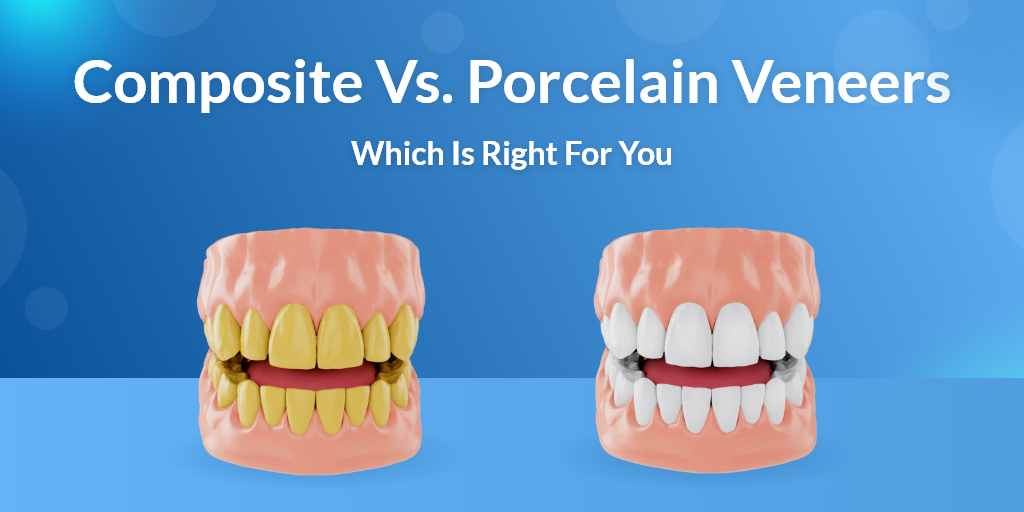The quest for a flawless smile has led many individuals down the path of dental veneer treatment. In the vast landscape of cosmetic dentistry, veneers have become very popular for those looking to rectify stained, chipped, or misaligned teeth. The two titans in the realm of veneers are composite and porcelain. Understanding the differences and benefits of composite vs. porcelain veneers is paramount to making an informed decision about which is best for you.
What Are Veneers?
Before diving into the heart of the comparison, it’s essential to understand what veneers are. Veneers are thin shells crafted to cover the front surface of teeth, improving their appearance in terms of shape, size, color, and overall aesthetics. Whether made from composite resin or porcelain, they’re custom-made to blend seamlessly with your natural teeth, giving you that picture-perfect smile.
The Appeal of Composite Veneers
Composite veneers are crafted from a composite resin material, which is directly applied and sculpted onto the teeth in layers. This process allows for a lot of flexibility and can usually be completed in just one dental visit.
Benefits of Composite Veneers
- Time-Efficiency: The direct application means fewer visits to the dentist. Most composite veneer treatments can be completed in a single appointment.
- Reparability: Should they become damaged, composite veneers can often be repaired with relative ease.
- Cost: Typically, composite veneers are more budget-friendly than their porcelain counterparts.
However, composite veneers might not last as long as porcelain and can be more prone to staining over time.
The Elegance of Porcelain Veneers
Porcelain veneers are made from thin layers of porcelain, which are then cemented onto the front of the teeth. Their fabrication process is more intricate, often requiring a few dental visits before the final placement.
Benefits of Porcelain Veneers
- Durability: When properly cared for, porcelain veneers can last upwards of 10-15 years, which is generally longer than composite.
- Stain Resistance: Porcelain has a smooth surface, making it resistant to stains from coffee, wine, and other common staining agents.
- Natural Appearance: The translucent nature of porcelain mirrors the light-reflecting properties of natural teeth, offering a more genuine look.
On the flip side, porcelain veneers are generally more expensive, and the process is less reversible than with composite due to the need to remove a small amount of tooth enamel for placement.
Which Veneer Treatment Should You Choose?
Deciding between composite and porcelain veneers boils down to individual needs, preferences, and budget. If you’re looking for a quicker and more cost-effective solution, composite might be your go-to. However, if you desire a longer-lasting and potentially more natural-looking result, porcelain could be worth the investment.
It’s also worth noting that while both veneer types offer a solution for enhancing aesthetic appeal, neither addresses underlying dental health issues. It’s crucial to consult with a dental professional to ensure your teeth are in good health before considering any veneer treatment.
Crafting Your Ideal Smile
In the grand scheme of composite vs. porcelain veneers, it’s evident that both have their merits and downsides. The journey to an enhanced smile is deeply personal, and what works for one person might not work for another. By understanding the nuances of each veneer type, you’ll be well-equipped to make a decision that aligns with your smile aspirations.
